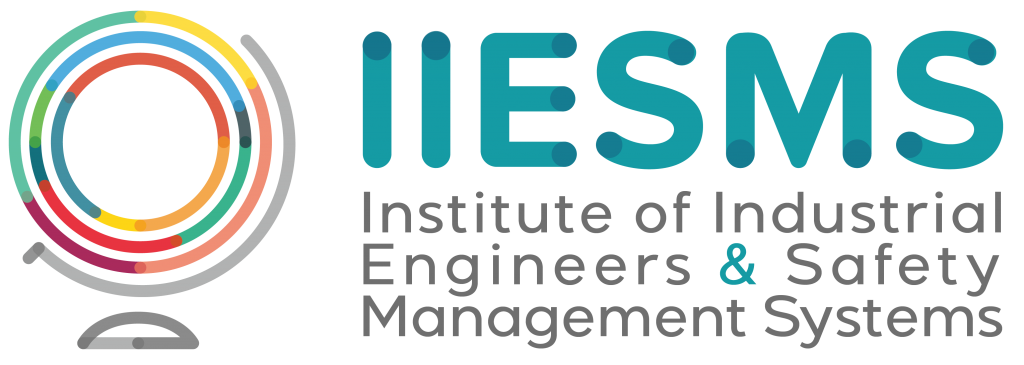Fire Safety Group
Becoming a member of the Institute of Industrial Engineers and Safety Management Systems (IIESMS) offers unparalleled opportunities for individuals at various stages of their fire safety careers. The Student Membership highlights student’s focus and commitment to learning in this specialised area. Joining as a student signals the beginning of a professional journey in fire safety. It provides access to a wealth of resources, mentorship from seasoned professionals, and networking opportunities that can significantly enhance their educational experience and career prospects. As a student member, you are investing in your future, gaining insights and connections that will serve you well as you progress in your career.
For those who have moved beyond the initial stages of their careers, obtaining certification as a Certified Fire Safety Manager (CFSM.IIESMS) or a Fire Safety Technician (FST.IIESMS)) can be highly beneficial. As a CFSM, you demonstrate managerial expertise and certification in managing fire safety protocols and systems. Meanwhile, as a Fire Safety Technician, your hands-on technical skills and focus on the practical applications and maintenance of fire safety systems are recognised, showcasing your ability to implement and maintain crucial safety measures effectively. These certifications enhance your professional credibility and open doors to advanced career opportunities and roles with greater responsibility.
For seasoned professionals aiming to solidify further their expertise and contributions to the field, titles such as Fire Systems Specialist (FSS.IIESMS), Certified Fire Engineer (CFEng.IIESMS), and Fellow (F.IIESMS) offer substantial recognition. These titles denote advanced technical knowledge, significant professional development, and high achievement in fire safety management. Achieving these designations places you among the elite in the industry, acknowledging your specialised engineering knowledge, extensive experience, and contributions to advancing fire safety. As a member with such credentials, you gain access to exclusive professional networks, opportunities to influence industry standards, and the ability to mentor and guide the next generation of fire safety professionals.
Membership Grades
The IIESMS approach to membership is structured into a “tiered” system designed to align professional experience, task management responsibilities, project leadership roles, supervision capabilities, decision-making authority, strategic involvement, and commitment to continued professional development (CPD). This system ensures that members are appropriately categorised based on their qualifications and experience levels, promoting growth and professional development within the organisation.

The Student Member grade with IIESMS is for individuals enrolled in accredited programmes. It provides early access to professional resources, networking opportunities, and career development support, bridging the gap between academic study and professional practice. Benefits include workshops, seminars, networking with peers and industry professionals, career services, and technical resources like publications and webinars. Applications are completed online with proof of enrolment, and membership is often offered at a reduced rate or free of charge.
Certified Fire Safety Manager (CFSM.IIESMS)
The Certified Fire Safety Manager (CFSM.IIESMS) credential is for recent graduates beginning their careers in fire safety management. It provides essential resources and support to transition from academic study to professional practice. Candidates must have a Level 5 qualification on the Irish NFQ or equivalent qualification recognised by IIESMS and at least one year of relevant experience. The certification emphasises key competencies in fire safety knowledge, communication, ethical practice, and continuous professional development (CPD). Achieving CFSM.IIESMS status enhances professional credibility and career advancement opportunities.
Fire Safety Technician (FST.IIESMS)
The Fire Safety Technician (FST.IIESMS) credential validates proficiency in fire safety technical practices. Employers highly regard it and ensure that the individual possesses the necessary qualifications to effectively perform technical fire safety roles. Candidates must have a recognised engineering technician qualification, such as a National Certificate or Level 6 qualification on the Irish NFQ or equivalent qualification recognised by IIESMS and at least two years of relevant experience. The certification process involves demonstrating engineering principles, practical application skills, and effective communication. Certified members must adhere to professional and ethical standards, engage in continuous professional development (CPD), and maintain an updated CPD record. Achieving FST.IIESMS certification enhances professional credibility and career advancement opportunities.
Fire Systems Specialist (FSS.IIESMS)
The Fire Systems Specialist (FSS.IIESMS) credential confirms expertise in specialised fire safety engineering areas, such as fire detection and alarm systems, sprinkler systems, smoke control systems, and fire suppression systems. Candidates must have a recognised engineering technician qualification, such as a National Certificate or Level 7 qualification on the Irish NFQ or an equivalent and at least three years of relevant postgraduate experience. The certification requires demonstrating engineering principles, technical skills, and effective communication. Certified members must adhere to professional and ethical standards and commit to ongoing professional development (CPD). Achieving FSS.IIESMS certification enhances professional credibility and career advancement opportunities.
The Fire Engineer (FEng.IIESMS) credential is designed for recent graduates beginning their professional careers in fire safety engineering. This certification provides essential resources and support for transitioning from academic study to professional practice. Candidates must have a recognised fire engineering qualification or Level 7 qualification on the Irish NFQ or an equivalent. No minimum professional experience is required, but candidates must demonstrate competence in applying engineering knowledge, effective communication, professional conduct, and a commitment to continuing professional development (CPD). Achieving FEng.IIESMS certification enhances professional credibility and offers significant career advancement opportunities.
Certified Fire Engineer (CFEng.IIESMS)
The Certified Fire Engineer (CFEng.IIESMS) credential confirms expertise in fire safety engineering, achieved through a dedicated training programme or examination. Candidates must have a recognised engineering technician qualification, such as a National Certificate or Level 8 qualification on the Irish NFQ or an equivalent, and at least four years of relevant postgraduate experience. The certification process includes submitting a detailed report, undergoing a professional interview, and demonstrating competence in applying engineering knowledge, managing engineering work, effective communication, and ethical practice. Continuous professional development (CPD) is required to maintain certification. Achieving CFEng.IIESMS certification enhances professional credibility and offers significant career advancement opportunities.
The Fellowship Certified Membership (F.IIESMS) recognises exceptional service and commitment within IIESMS. As a Fellow, you join an elite group of professionals, gaining opportunities for professional growth, leadership roles, and networking with distinguished members. This status significantly impacts sustainable engineering, fire safety, and health and safety communities, allowing you to inspire others and advance these fields. Achieving the F.IIESMS grade honours engineers for significant contributions and leadership. Maintaining an updated Continuing Professional Development (CPD) record ensures lifelong learning and professional growth. Fellowship Certified Membership signifies a commitment to excellence and substantial contributions to the engineering profession.

